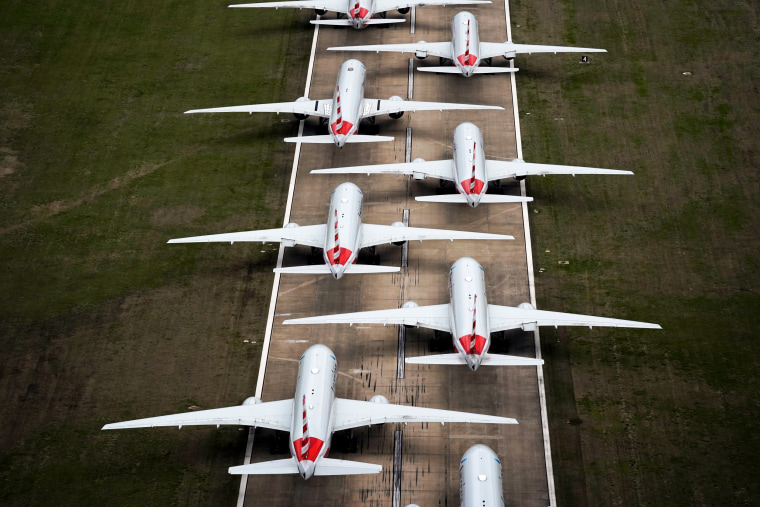At Wednesday's White House press briefing, Donald Trump tried to talk up progress in the domestic transportation sector and pointed to a specific area. "[T]hey're doing tests on airlines -- very strong tests -- for getting on, getting off," the president said. "They're doing tests on trains -- getting on, getting off."
At face value, this seemed sensible. Domestic travel has obviously been dramatically curtailed in recent weeks, but conducting testing on air and rail passengers could help with broader mitigation efforts.
The trouble, of course, is that the "very strong tests" being administered on these passengers don't appear to exist.
And yet, there was Trump again over the weekend, once again boasting that officials are conducting "very strong testing" on people after their flights. A reporter asked, "When you say 'testing,' do you mean domestic travel or people coming in from outside the country?" The president replied, "Both."
It led to one of the more memorable questions from recent White House briefings.
"You know, we've talked to some airlines, sir, and they say they don't know what you're talking about when you say that."
As is always the case, the details matter. As CNN's Daniel Dale explained, there's "enhanced entry screening" -- including temperature checks -- for passengers returning to the United States from Iran, China, and much of Europe, as well as "a patchwork of state screening at airports."
But as Dale added, "[S]creening -- which can require as little as filling out a form -- is not the same as a test to determine if someone has been infected. And most US passengers are not being screened in any way upon disembarking."
There's reason to believe Trump doesn't know that.
Indeed, looking again at the reporter's quote from Saturday -- the relevant authorities don't know what Trump's talking about -- it's striking how frequently the sentiment comes up. The problem is not limited to the instances in which the president makes claims that are plainly false; there are also a variety of instances in which he doesn't appear to know what's going on.
For example, it was just last week when the Republican told a group of governors, "I haven't heard about testing being a problem," reflecting a dangerous amount of cluelessness. He's questioned state-level need for ventilators. He's described medications as "approved" that haven't actually been cleared to treat COVID-19.
He's also falsely boasted about 1.4 million coronavirus tests that would be completed weeks ago; talked up a Google resource that's still in the development stage; and overstated the details surrounding plans for drive-through virus testing.
As part of a harangue against Michigan Gov. Gretchen Whitmer (D), Trump recently said the Democratic governor "has no idea what's going on." It was among the president's more ironic lines of attack.
